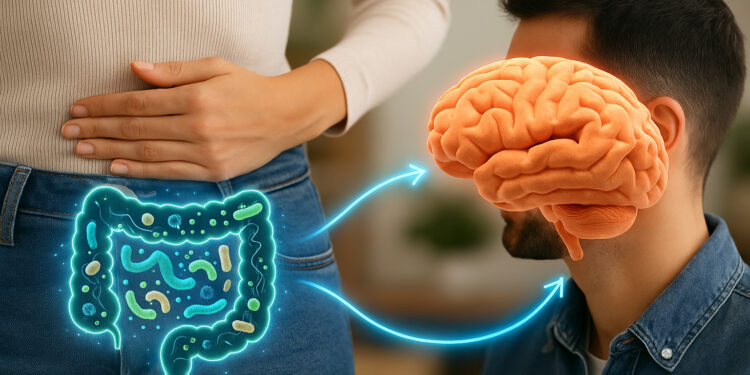Scientists are uncovering one of the most fascinating relationships in human health, the powerful link between the gut and the brain. What was once thought of as just a digestive organ is now recognized as a key player in emotional regulation, cognition, and even mood. This two-way communication system, known as the gut-brain axis, is primarily influenced by trillions of microorganisms living in the gut. Understanding this connection could revolutionize how we approach mental health.
The Science Behind the Gut-Brain Axis
The gut and brain communicate through a complex network involving the vagus nerve, hormones, and immune signals. This communication allows the gut microbiome to influence brain function directly. For instance, certain gut bacteria produce neurotransmitters such as serotonin and dopamine, which are crucial for mood regulation. Around 90% of the body’s serotonin is produced in the gut—highlighting how critical these microbes are for mental wellness.
Microbiomes and Mental Health Disorders
Recent research has linked imbalances in gut bacteria, known as dysbiosis, with mental health disorders like depression, anxiety, and even neurodegenerative diseases. When the gut is unhealthy, it can trigger inflammation and send distress signals to the brain, impacting emotional stability. Studies have found that people with depression often have reduced microbial diversity compared to those with balanced gut flora. This emerging evidence is changing how medical professionals view psychological treatment—expanding it to include diet and gut health.
How Diet Shapes Mental Health
Food plays a direct role in supporting a healthy gut microbiome. Diets rich in fiber, fermented foods, and prebiotics encourage the growth of beneficial bacteria. On the other hand, processed foods, excessive sugar, and antibiotics can disrupt microbial balance. Including foods like yogurt, kefir, sauerkraut, and whole grains can improve gut diversity and, consequently, emotional well-being. Nutritionists and psychiatrists alike are now exploring how personalized diets could complement therapy and medication.
The Future of Mental Wellness Through Gut Health
As the gut-brain connection gains scientific traction, it opens new avenues for holistic treatments. Probiotics and dietary changes may soon become mainstream adjunct therapies for mood disorders. Understanding your gut ecosystem could become as essential as understanding your mental state. The future of mental wellness lies in harmony—between the brain, the body, and the microbes that call it home.
Conclusion
Your gut and brain are in constant conversation, shaping both physical and emotional health. By nurturing your gut microbiome, you’re also taking care of your mind. The next time you think about mental wellness, remember—it may begin in your gut.












